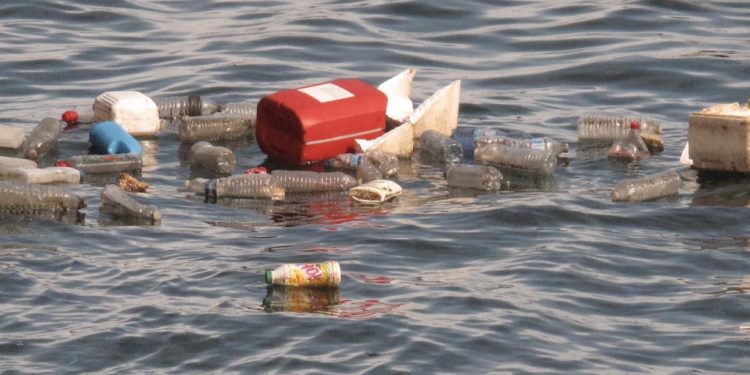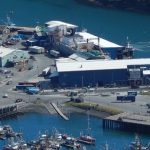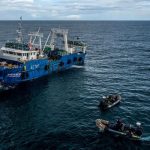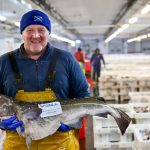Ørsted has made a long-term commitment to help tackle the amount of marine litter in our seas. Working closely with the fishing industry, Ørsted has established a Fishing for Litter project at ports in Grimsby, Cromer, Kings Lynn, East-Runton and Boston – with ambitions to expand the project across the English coast.
‘Our aim is to provide long term action and to work alongside fishing communities to help them be at the forefront of the fight against marine litter,’ said Lara Leonard, commercial fisheries manager at Ørsted.
‘Over the past couple of years, we’ve been engaging directly with fishers and fishing organisations to make sure that we can facilitate an effective and functional solution which works for them. Our main focus is to aid and empower fishers to make a difference, while also building on the positive relations with the fishing community who work within or near to our wind farm sites.’
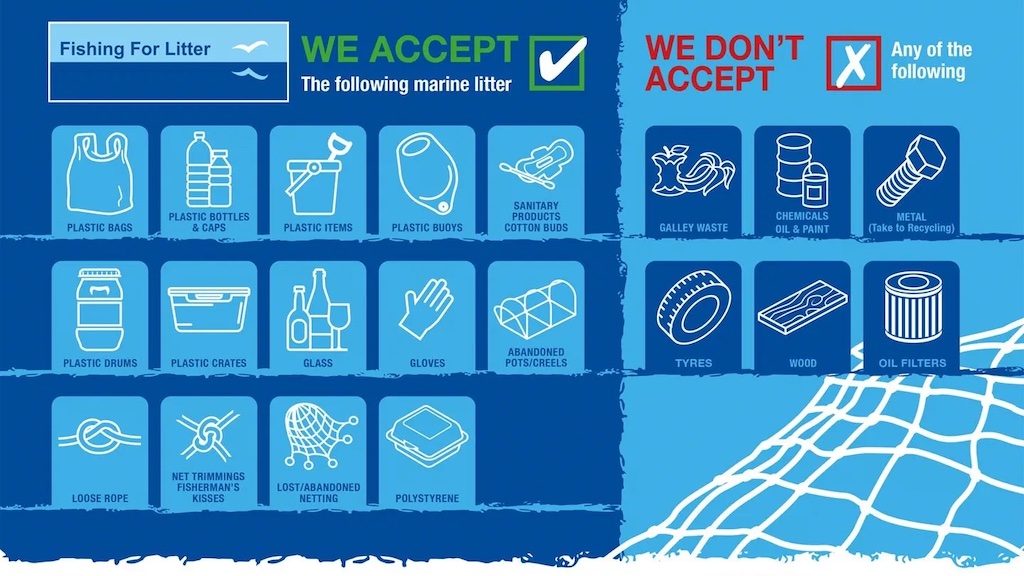
Fishing for Litter, run by KIMO UK, is a unique and award-winning project working with the fishing industry to reduce the amount of plastic pollution and marine litter in the sea.
Participating fishing vessels are given hardwearing bags to collect marine litter caught during fishing activities. Full bags of litter can then be taken ashore for disposal in dedicated skips. The project provides the bags, skips, and covers the waste disposal costs. Participating fishers, and any harbour staff who support the initiative, help to facilitate the disposal of marine litter and volunteer their time.
Ørsted’s Fishing Industry Representatives, who have well established and often long-term relationships with fishers working within the vicinity of Ørsted’s offshore wind farm projects, act as liaison officers for the Fishing for Litter project.
‘Fishing for Litter schemes have been a great success in many areas and I am delighted by the launch of this new initiative. Clean and healthy seas are hugely important to all of us,’ said NFFO deputy chief executive Mike Cohen.
‘No-one knows or cares more about this beautiful, dangerous, fascinating environment than the fishermen who spend their lives around it. Participating in a Fishing for Litter scheme is another way that fishermen can look after these places that mean so much to them.’
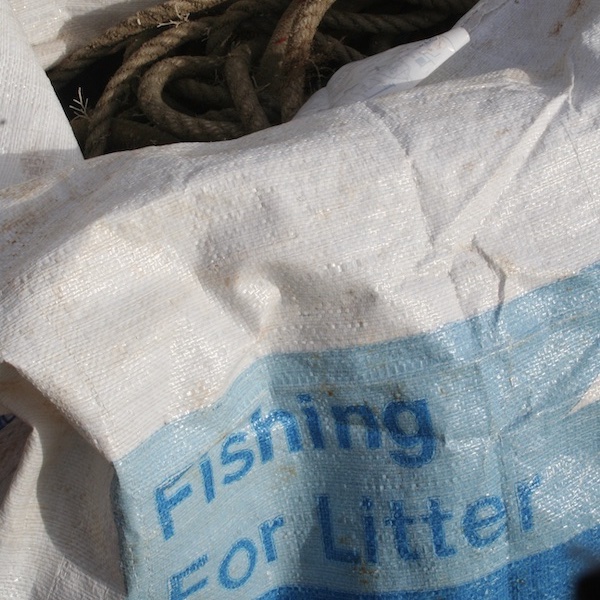
Working alongside the fishing community and industry bodies, Ørsted’s Fisheries Stakeholder Team designed and circulated a questionnaire to obtain a better understanding of marine litter pollution and identify the best practical solution for fishers. Circulated by the National Federation of Fishermen’s Organisation (NFFO) and Holderness Fishing Industry Group (HFIG), the surveys demonstrated that the provision of bins and skips at local ports would be the preferred solution.
Ørsted’s Hornsea 3 offshore wind farm has committed to funding Fishing for Litter disposal facilities at up to six ports along the east of England for the approximately 30-year life of the project. In making this long-term commitment, Hornsea 3 hopes to contribute to the permanent establishment of Fishing for Litter and provide fishers with the facilities to remove litter from the marine environment and encourage environmental restoration. Ørsted continues to expand its support of Fishing for Litter and is working to set up disposal facilities along the west coast of England and north into Yorkshire. Ørsted is also investigating potential options for the recycling of the marine litter disposed in the provided skips.
‘Ørsted’s continuing support provides a long term commitment to annual costs, helping KIMO to realise its ambitions both to expand the scheme more widely around the UK and to ensure that as much marine waste as possible is disposed of responsibly through recycle/reuse,’ commented Julia Cant, KIMO UK Administrator & Fishing for Litter Project co-ordinator.
‘Hornsea 3’s lifetime commitment to support Fishing for Litter will help secure the project’s future, contributing directly to a reduction the amount of marine litter in our oceans and an increased awareness of the ecological, environmental and economic impacts that it causes. We have received an extremely positive response and great support in all harbours visited, which has been very encouraging and it has been tremendous to see the Fishing for Litter grow as such pace.’

